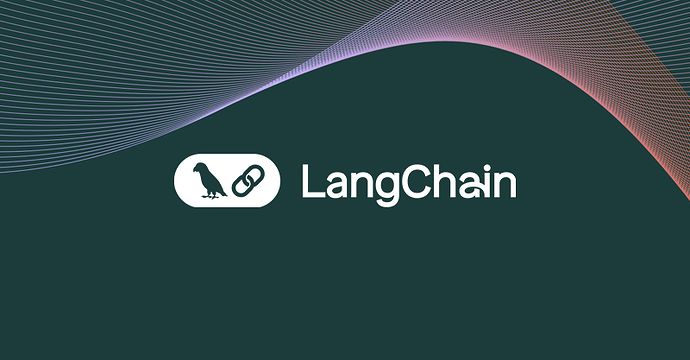LangChain An Advanced Framework for Modular LLM Applications
Introduction
LangChain is one of the most widely used frameworks for building applications powered by large language models (LLMs). It provides a flexible way to compose processing chains, integrate memory, knowledge bases, intelligent agents, and external tools to create powerful conversational applications.
This article presents an in-depth look at LangChain: its core concepts, architecture, real-world use cases, third-party integrations, development best practices, and performance considerations.
1. LangChain Architecture
LangChain is based on modular components that can be interconnected to build chains and agent workflows tailored to LLM-based solutions.
Key modules:
- LLM & ChatModel: Interfaces for calling OpenAI, Claude, Azure, Cohere, HuggingFace, etc.
- PromptTemplate: Dynamic prompt generation.
- Chains: Sequential processing units (e.g., RetrievalQA, MapReduceChain).
- Tools: Callable functions for agents (API calls, calculations, search, etc.).
- Agents: Decision-making entities that dynamically select tools.
- Memory: Storage for conversational state (buffer, vector DB, etc.).
- Retrievers: Access to non-parametric knowledge via vector databases.
- OutputParser: Controls and structures model outputs.
2. Processing Chains
LangChain offers various chains adapted to common LLM tasks:
a. Simple LLMChain
1
2
3
4
5
6
7
8
from langchain.prompts import PromptTemplate
from langchain.llms import OpenAI
from langchain.chains import LLMChain
prompt = PromptTemplate.from_template("Summarize the following text: {text}")
llm = OpenAI(temperature=0)
chain = LLMChain(prompt=prompt, llm=llm)
result = chain.run(text="This is a long document...")
b. RetrievalQA
A chain that enables retrieval-augmented generation (RAG).
1
2
3
4
5
6
7
8
from langchain.chains import RetrievalQA
from langchain.vectorstores import FAISS
from langchain.embeddings import OpenAIEmbeddings
vectorstore = FAISS.load_local("docs_index", OpenAIEmbeddings())
retriever = vectorstore.as_retriever()
qa_chain = RetrievalQA.from_chain_type(llm=OpenAI(), retriever=retriever)
qa_chain.run("What is the refund process?")
3. Intelligent Agents
LangChain allows the creation of autonomous agents that reason and use tools.
a. Zero-shot Agent
1
2
3
4
5
6
7
from langchain.agents import load_tools, initialize_agent
from langchain.llms import OpenAI
llm = OpenAI(temperature=0)
tools = load_tools(["serpapi", "llm-math"], llm=llm)
agent = initialize_agent(tools, llm, agent="zero-shot-react-description")
agent.run("How many days are there between June 8 and today?")
b. Custom Tools
1
2
3
4
5
def convert_currency(params):
return f"Conversion: {params['amount']} EUR = ... USD"
from langchain.tools import Tool
my_tool = Tool.from_function(name="CurrencyConverter", func=convert_currency)
4. Vector Store Integration
LangChain supports FAISS, Pinecone, Weaviate, Chroma, Qdrant, Milvus, etc.
1
2
3
4
5
6
from langchain.vectorstores import Chroma
from langchain.embeddings import OpenAIEmbeddings
embeddings = OpenAIEmbeddings()
chroma = Chroma.from_documents(docs, embeddings)
retriever = chroma.as_retriever()
5. Memory Management
1
2
3
from langchain.memory import ConversationBufferMemory
memory = ConversationBufferMemory()
chain = LLMChain(llm=OpenAI(), prompt=prompt, memory=memory)
Other memory types include:
ConversationSummaryMemoryVectorStoreRetrieverMemoryConversationTokenBufferMemory
6. Observability & Debugging
LangChain provides:
- LangSmith for tracing prompts, chains, inputs/outputs
- Custom callbacks (stdout, log files, cloud)
- Verbose mode per component
7. Advanced Use Cases
a. Customer Support Assistant with Vector FAQ
- PDF or internal data ingestion
- FAISS indexing
- RetrievalQA with question reformulation
b. Information Extraction
- Custom prompt + OutputParser
- Useful for receipt parsing, invoice processing, etc.
c. Multi-hop Chains (MapReduceChain)
- Document-level summaries → final aggregation
8. Best Practices
- Use
PromptTemplateto structure prompt logic - Use
OutputParserto enforce structured outputs (e.g., JSON, CSV) - Separate RAG logic (retrieval) from reasoning logic (LLM)
- Build reusable toolkits
- Log with LangSmith and callbacks
9. Limitations
- Less suited for complex control logic or branching (use LangGraph)
- Limited built-in support for parallelism
- Strong dependency on hosted LLMs
Conclusion
LangChain is an essential framework for any developer working with LLMs. Its strength lies in modularity, ecosystem integrations, and a strong developer community. For simple to moderately complex applications, LangChain enables fast and scalable production deployments.
